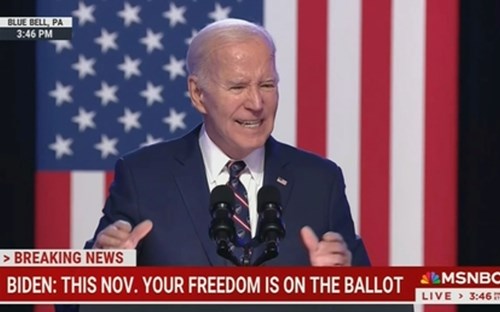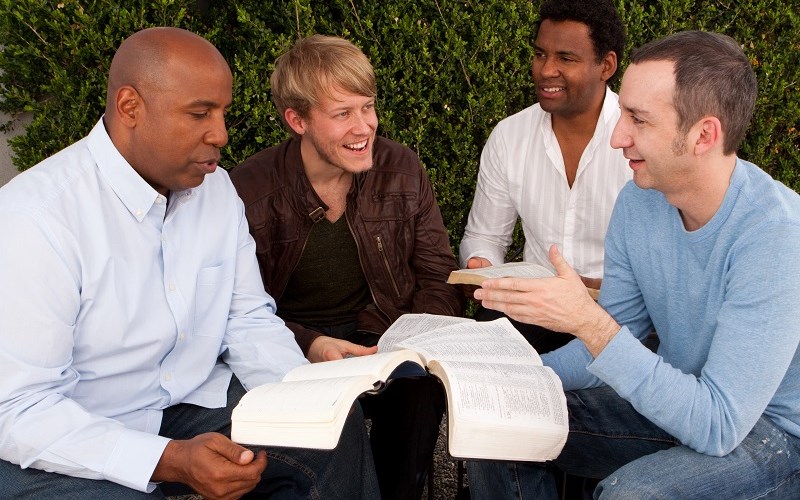In the streets of Great Britain, violent protests broke out in late July after three girls ages 9, 7, and 6 were stabbed to death while attending a dance class. Many others, including adults, were also stabbed but survived.
The suspect, believed to be an immigrant, likely stoked decades of boiling anger after the United Kingdom has welcomed millions of immigrants, and lectured its own citizens to shut up, if they criticize the changing culture.
With rioters in the streets, UK authorities assured the public that "misinformation" was spreading about the suspect who is, in fact, a native of Wales. The teenager, Alex Rudakubana, however, was also born to parents from Rwanda.
 “It spilled over initially because of misinformation, or what we’re told was misinformation, that this (suspect) was an individual who came over illegally on a boat,” Peter McIlvenna, of the London-based Hearts of Oak free speech advocacy group, said on Washington Watch Wednesday.
“It spilled over initially because of misinformation, or what we’re told was misinformation, that this (suspect) was an individual who came over illegally on a boat,” Peter McIlvenna, of the London-based Hearts of Oak free speech advocacy group, said on Washington Watch Wednesday.
After riots broke out across the country, from angry communities being left behind, McIlvenna says the newly elected UK government used the protests for what he called a "unprecedented clampdown" on free speech.
"It’s exactly the same issue that you have in the U.S., which we have all across Europe, which is mass immigration and how it’s decimated and destroyed communities and left many individuals behind and put a huge strain on many of our resources,” McIlvenna told show host Jody Hice.
Meanwhile, a leftist government not long in power has gone to extreme measures of censorship and expanded use of facial recognition technology to ostensibly curb the riots.
Newly elected Prime Minister Keir Starmer has also warned social media companies to make more efforts to address “misinformation” on their platforms.
Two different views on free speech
That has raised red flags with free speech defenders in the UK – and in the United States.
“This is an interesting story, and people need to understand that the European view on free speech is very different from our view here in the United States,” attorney and law professor Mike Donnelly said on American Family Radio Thursday.
The U.S. has a hate crime law, enacted in 2009 with the James Byrd Jr. Hate Crimes Prevention Act which expands protections against people of a certain race, color, religion, sexual orientation or gender identity.
Unlike the U.K., the U.S. has no hate speech law thanks to the First Amendment.
Across the ocean, British citizens can get in trouble for a Facebook post. They have committed a crime under the Public Order Act of 1986 if they “express” hostility to the race, religion, sexual orientation or gender identity of another.
 n one example, a British man was sentenced to 20 months in prison after pleading guilty to "intending to stir up racial hatred online," according to a Daily Caller story.
n one example, a British man was sentenced to 20 months in prison after pleading guilty to "intending to stir up racial hatred online," according to a Daily Caller story.
The man, Jordan Parlour, commented on Facebook that he didn't want his money paying for immigrants who "rape our kids and get priority." In another post he wrote that "every man and his dog should smash the [expletive] out of the Britannia hotel," which is housing asylum seekers.
British citizens can also get in trouble for shouting mean things in public, too. A protester named David Spring, 61, was sentenced to 18 months in prison after police footage showed him making "threatening and hostile gestures" at police, according to a Daily Caller story.
Spring also joined in a huge street protester in which demonstrator chanted "who the [profanity] is Allah!" as they marched.
Meanwhile, The Daily Mail reported last week that Lawson Natty, 18, is being freed from a prison cell to make room for the arrested protesters. Natty is serving a sentence of two years and 18 months after killing Gordon Gault, 14, with a machete.
"The Government has had to take action to ensure we have enough prison places so police can continue to take dangerous criminals off the streets and keep the public safe," a Ministry of Justice spokesperson told The Daily Mail.
Free speech fight on this side of the pond
The Biden-Harris administration was challenged on free speech in Missouri v. Biden in which several states charged the Biden-Harris administration with colluding with social media companies to limit speech on their platforms.
The Supreme Court ultimately sided with the administration by stating the plaintiffs failed to prove they themselves were harmed by the collusion and therefore lacked the standing to bring the case.
 The First Amendment continues to offer protection in the U.S., but it’s only as good as the high court’s interpretation.
The First Amendment continues to offer protection in the U.S., but it’s only as good as the high court’s interpretation.
Like what’s happening in the U.K. now, the U.S government has not been shy about utilizing its resources against opposing viewpoints.
The U.K. and U.S. may have different free speech laws, but immigration concerns among many citizens are very similar.
The Biden-Harris administration’s open border policy remains a key issue.
New government goes 'full totalitarian'
According to McIlvenna, Starmer and the Labour Party waited 14 years to regain power. Now they fear the unrest will destabilize their government.
So they’ve initiated “full lockdown, full totalitarian procedures” in response.
There have been more than 1,000 arrests, some of them “for violent conduct” but many for social media posts, McIlvenna said.
Now the government, with no legislation to back up the claims, says riot participants could be subject to 10 years in prison.
“Participation could mean simply walking past, you were in the vicinity, but you weren’t involved in it,” McIlvenna said.
Sirk Mark Rowley of London’s Metropolitan Police Department has threatened foreign nationals to be careful of what they post.
“We’re coming for you,” he said to Sky News, calling out people who commit “crimes” on the streets of London or from “further afield online.”
“Elon Musk is probably top of their list because Elon Musk is basically the opposition in the UK. As much as I disagree with Elon on many issues, what he’s down with Twitter and how he’s held the government to account is astounding because we don’t have an opposition, and it is Elon Musk who is the opposition to our far-left government,” McIlvenna said.
Flashback to Ireland and 'the Troubles'
McIlvenna says the government has not tried to address underlying reasons for nationwide unrest among the citizenry.
He compares the crackdown he sees now to what was a decades-long conflict in Northern Ireland.
“The government has gone in with a Stasi-like approach, a clampdown I’ve never seen in my time except in Northern Ireland when we had the Troubles, but they’ve gone in, smashed peoples’ doors, arrested people,” McIlvenna said.







